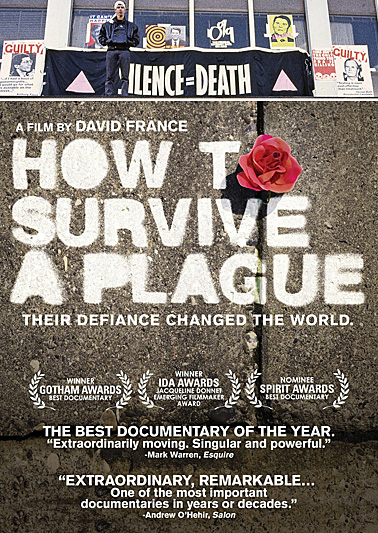“How to Survive a Plague,” a 2012 film nominated for an Academy Award for Best Documentary Feature, will be shown Monday, March 16, at 7:15 p.m. in Memorial Field House Room 2100.
 The free, public screening is sponsored by the UT Disability Studies Program and will be followed by a question-and-answer session.
The free, public screening is sponsored by the UT Disability Studies Program and will be followed by a question-and-answer session.
Looking at how the AIDS Coalition to Unleash Power (ACT UP) and the Treatment Action Group (TAG) pushed for medical treatment can help the fight for social justice for those with disabilities, according to Dr. Ally Day.
“Analysis of HIV history and activism can be enhanced through disability studies, which centers the experience of people with illness and disability to bring about change in medical fields, law and policy — in addition to enhancing the humanities and social sciences,” the UT assistant professor of disability studies said.
“HIV stigma slowed down the process of passing the Americans With Disability Act between 1988 and 1990; understanding how ACT UP intervened in disrupting that stigma, and even eliminating it in some communities, is fundamental to interpreting our current legal and political investments around disability and accommodations,” Day said.
Filmmaker David France used archival footage from the 1980s and 1990s to show how ACT UP and TAG members changed a diagnosis of AIDS from a death sentence to a manageable condition by infiltrating the pharmaceutical industry, helping to identify promising new drugs, and expediting trials to get medications to patients.
“Even though treatment for HIV has changed significantly since ACT UP’s work three decades ago, the fundamental exclusion of stigmatized populations from medical research remains a significant problem — as does access to affordable medications for chronic illnesses, the recent innovations in hepatitis C treatment being a key example of pharmaceutical companies prioritizing profit over treatment,” Day said.
“One thing I think the film leaves out that I definitely want to address in our Q-and-A is the work of lesbians and the connection with the women’s health movement of the 1970s to ACT UP’s work,” she added. “Coalition was essential to the successes of ACT UP — something I definitely want our community to take away in thinking about their own social justice work.”
For more information on the screening, call the UT Disability Studies Program at 419.530.7244.